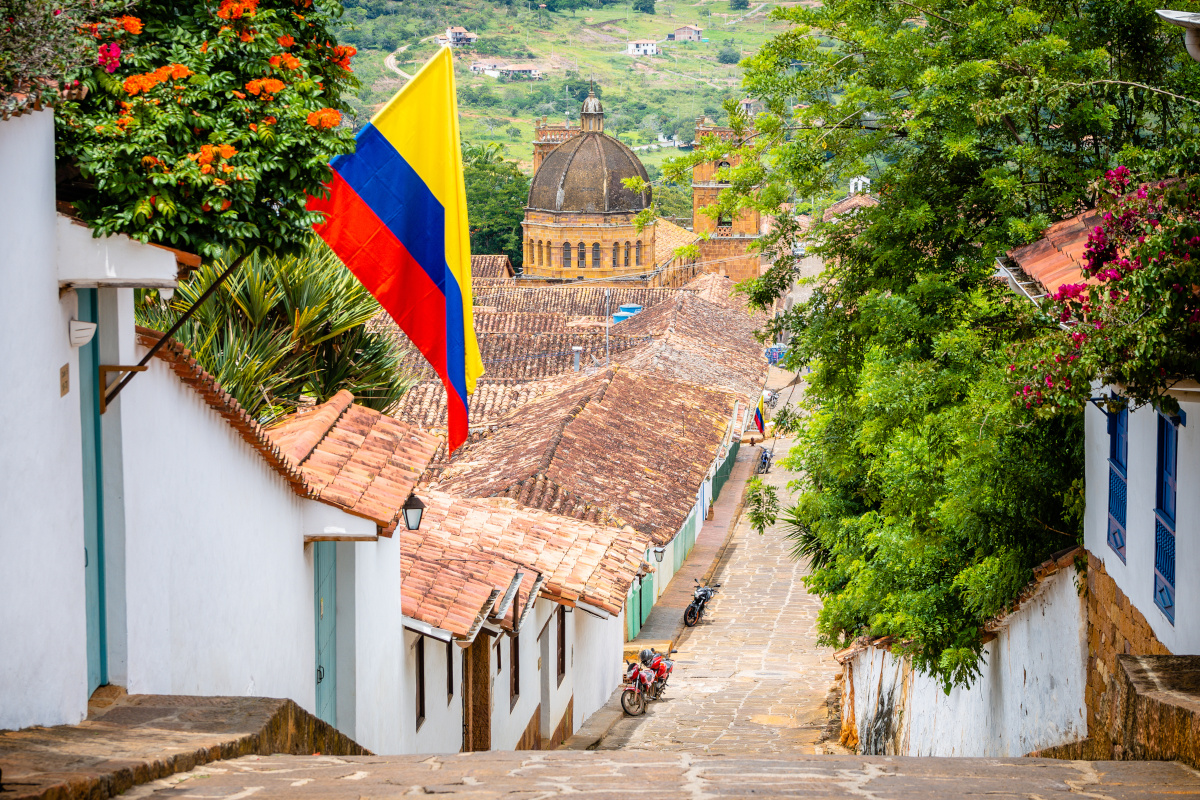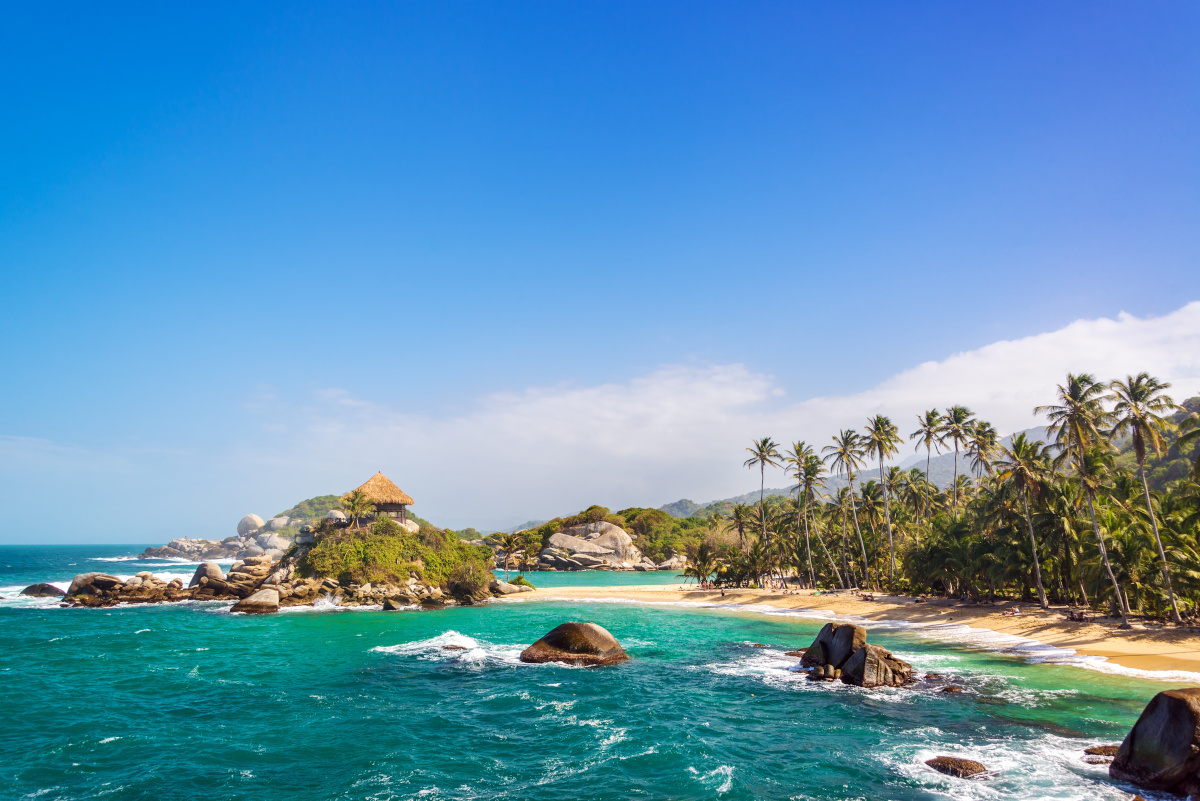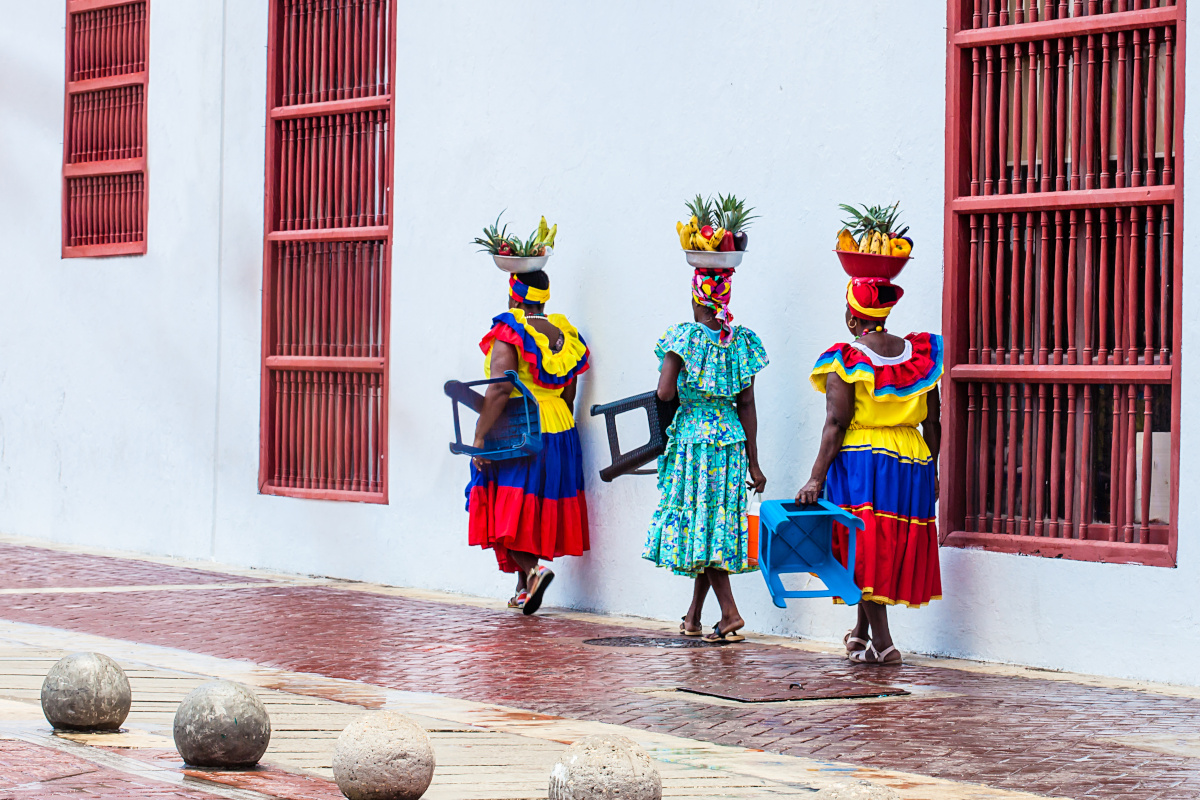
Health & Safety When Traveling to Colombia
Stay Safe and Healthy on Your Colombia Trip With Redpoint Insurance
A visit to Colombia offers everything from rich urban culture to unforgettable outdoor adventures. Known as the gateway to the Amazon rainforest, it's a great place to start a tour or rainforest adventure, and exciting cities, like Cartagena, Bogotá, and Medellín, offer their own vibrant cultures for visitors to explore.
While most trips to the country are incident-free, there are some elevated health and safety risks involved, per the U.S. State Department. Travel insurance for Colombia is highly recommended — it just offers an extra layer of protection in the event that something doesn't go to plan.
For your personal security, look for a comprehensive policy to protect against incidents like theft, lost luggage, and trip disruption, and to help offset the costs of emergency medical care in case it's needed.

Medical, Health & Safety in Colombia
Let’s take a look at some key Colombia travel health and safety considerations to keep in mind as you prepare for your trip.
Common Diseases
Colombia has a warm, tropical climate, which means it’s home to various health risks and diseases that U.S. visitors don’t encounter at home.
Mosquito-borne illnesses, like dengue fever, chikungunya, and Zika virus, are prevalent, especially in low-altitude areas. Malaria is less common but may still pose a risk in rural and jungle regions, so preventative medication is recommended if you plan to visit these areas.
For the most current travel advice, consult the World Health Organization (WHO) for health news and updates before your departure.
Vaccinations
No vaccinations are required to enter Colombia, but the U.S. Centers for Disease Control and Prevention (CDC) advises visitors to be up-to-date on all routine vaccines, as well as hepatitis A, hepatitis B, measles, and tetanus.
Mosquito-borne viruses are prevalent in Colombia, so certain high-risk travelers should consider a vaccine for chikungunya. You’ll also need a yellow-fever vaccine if you’ll be arriving from Angola, Brazil, Democratic Republic of the Congo, or Uganda — including any 12-hour-plus airport transits or layovers. You may also need it if you’re visiting any low-altitude areas — less than 1,700m (5,600ft).
A yellow-fever vaccine is not currently recommended, generally, if you’ll be sticking to the cities of Bogotá, Barranquilla, Cali, Cartagena, and Medellín; to the archipelagos of San Andrés and Providencia; and to areas of higher elevation (above 2,300m or 7,550ft).
Local Medical Treatment
Colombia has a mix of public and private healthcare facilities, and its healthcare system is known as one of the best in South America. Major cities, like Bogotá, Medellín, and Cartagena, have high-quality private hospitals, often with English-speaking staff.
However, in remote or rural areas, you may struggle to access the care you need. Travelers should ensure they have comprehensive travel insurance covering medical evacuation in case of emergencies, particularly if your itinerary includes any of the country’s more isolated locations. You’ll also need to see about a waiver for any pre-existing medical conditions.
You’ll find over-the-counter remedies for common ailments in pharmacies across the country, but it’s a good idea to carry a first-aid kit stocked with your personal essentials, as well as any prescription medication you may need, stored in its original container.
Water & Food
Tap water is generally safe to drink in large cities, like Bogotá and Medellín, but bottled or filtered water is recommended elsewhere. Also be aware of ice made from tap water.
To minimize the risk of food-borne illnesses, avoid raw or undercooked foods and unwashed fruits and vegetables (including salads). Street food is prevalent in Colombia, but it can be the cause of food-borne illness for visitors, so proceed cautiously.
Air Quality
Due to traffic and industrial pollution, air quality in the major cities of Bogotá and Medellín can often be poor. If you struggle with a respiratory condition, try to book accommodation in a less congested area, and monitor air-quality indices and take the relevant precautions during your stay.
Crime & Personal Safety
Colombia has a mixed safety record for tourists. Though it’s improved in recent years, a high level of caution is still warranted, both for petty and violent crime, like robbery and sexual assault, particularly in urban areas.
The U.S. State Department notes that U.S. citizens can be targets of attacks in Colombia, so be aware of the no-go zones, particularly in rural or border areas, where armed conflict and criminal activity from illegal armed groups may persist.
Terrorist groups in Colombia may target transportation hubs, markets and shopping malls, local government facilities, police stations, military facilities, hotels, clubs, restaurants, airports, and other public areas, as well as U.S. government facilities, per the State Department.
Demonstrations and other forms of civil unrest are common and may disrupt travel. Illegal drugs are sometimes put in foreigners’ food or drinks to make it easier to rob or assault them, so be aware of that threat as well.
Before you go, register for the Smart Traveler Enrollment Program (STEP) in case of emergencies, and stay subscribed to State Department bulletins for further information.
Once you’ve arrived in Colombia, monitor local media to keep abreast of any potential threats, and seek help from the American embassy and local authorities if you run into any issues.
Natural Disasters
Colombia is prone to natural disasters, such as earthquakes, volcanic activity, and heavy rains that can cause flooding and landslides. They can strike with little or no warning, so travelers should familiarize themselves with local emergency protocols in advance, and monitor local news and weather forecasts to be aware of any ongoing threats.
Local Laws
Failure to comply with Colombian law can result in anything from hefty fines to lengthy prison sentences, so you may want to brush up on some of the local rules and regulations ahead of your trip.
Foreign citizens should carry a copy of their passport at all times, and be prepared to show it to local authorities if asked.
Driving in Colombia can be more dangerous than in other countries, due to chaotic roads and heightened security risks. If you decide to hire a car, familiarize yourself with the local traffic laws, plan your routes ahead of time, and avoid driving at night.
Popular Colombia Health & Safety Searches
FAQs about Colombia Travel Health & Safety

Is Colombia safe to visit?
While Colombia has a mixed safety record for visitors, it's improved in recent years, and popular tourist destinations, like Medellín, Bogotá, Cartagena, and the Coffee Region, have historically been considered safe for travelers.
Still, both before and during your trip, you should keep an eye on the U.S. Department of State'scountry information page for any travel advisories, which have recently urged U.S. citizens to reconsider travel, including warnings of increased risk of crime, terrorism, kidnapping, and unrest, as well as areas to be avoided altogether.
Once you’re on the ground in Colombia, you should take the usual precautions and always pay careful attention to your surroundings, whether it's on city streets, in and around public transportation hubs, or at crowded attractions, both during daylight hours and after dark.
What vaccinations are needed to travel to Colombia?
Currently, no vaccines are required to enter Colombia. However, the CDC recommends that in addition to being up to date on all routine vaccinations, travelers to Colombia be vaccinated for hepatitis A, hepatitis B, measles, tetanus, and influenza.
The mosquito-borne virus known as chikungunya is also a concern, and the CDC advises that certain high-risk travelers consider vaccination. A yellow-fever vaccine may also be required or recommended, depending on your travel plans.
What is required for a U.S. citizen to visit Colombia?
U.S. travelers visiting Colombia need a valid passport with one empty page, which is required for entry. A visa is not required for visits less than 90 days, though you may be asked for proof of onward travel (i.e., a flight home) and travel insurance.
You may also need to present a yellow-fever vaccination certificate, depending on where you've transited through or where you're visiting in Colombia, so the State Department suggests checking the Colombia Ministry of Health website for those requirements.
Are there any COVID-19 restrictions for travelers to Colombia?
COVID-19 entry requirements for Colombia have relaxed in recent years, and travelers are no longer required to show proof of vaccination or a negative COVID-19 test to enter. However, if you are worried about a coronavirus infection upsetting your travel plans, it may be a good idea to add cancel for any reason (CFAR) coverage to your travel insurance policy.
What happens if a tourist gets sick in Colombia?
Many urban areas in Colombia, like Bogotá, Medellín, and Cartagena, have modern hospitals and clinics with qualified English-speaking doctors. However, if you're visiting more rural or remote areas, you may have to travel a bit farther for high-quality medical care.
In any situation where you might need medical care, travel insurance is essential, as it can cover the costs of emergency care, doctor consultations, or even evacuation if necessary. Keep your policy details handy, and call your provider’s assistance line for guidance on approved medical facilities. Redpoint's 24/7 assistance line can also provide help at +1-415-481-0610.
Are the hospitals good in Colombia?
Yes, Colombia has high-quality healthcare, especially in major cities, like Bogotá, Medellín, and Cali. Colombia is a popular destination for medical tourism, and many hospitals and clinics meet international standards. Doctors are often bilingual as well.
However, rural areas may lack advanced medical facilities, so having travel insurance that includes evacuation coverage is recommended. If you are having trouble finding adequate healthcare, contact Redpoint's 24/7 emergency assistance line +1 415-481-0600 and our team will help you locate care that's covered by your insurance for Colombia.
Is Colombia safe for female travelers?
Many female travelers travel to Colombia without incident, but they should exercise all the normal precautions, including avoiding traveling or walking alone at night, avoiding protest areas and crowds, not using unregistered taxis or rideshares, and keeping someone aware of your itinerary or any changes to your plans.
How do I contact the U.S. Embassy in Colombia?
The U.S. Embassy in Bogotá can help with a range of issues, from lost passports to emergency situations. There is also a consular agency in Barranquilla. You can contact the main embassy at the address and phone number below:
Carrera 45 No. 24B-27
Bogotá, D.C. Colombia
Tel: +57-601-275-2000
For emergencies, U.S. citizens can call the embassy’s 24/7 emergency line: +57-601-275-4021
Protect Your Trip With Redpoint Travel Insurance
Whatever you have planned for your trip to Colombia, Redpoint’s comprehensive, easy-to-understand policies can cover adventures of all kinds. Explore our three international travel insurance plans — Ripcord, Cavalry, and Harbor — and get a quote today.

